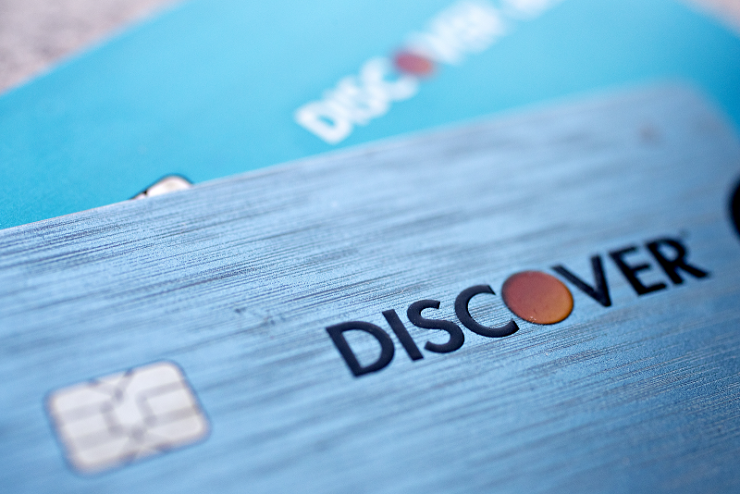Discover Financial Services' revenue rose 27% during the fourth quarter and loans grew 20% as consumers began revolving balances again after a long period of relatively slow growth during the pandemic.
The bad news: Card charge-offs spiked and will continue to rise.
The Riverwoods, Illinois-based company said credit card charge-offs for the quarter rose 76 basis points to 2.13% from 1.37% year over year, and are likely to hit 3.9% for the full year. That news rattled the market on Wednesday, causing a dip in the company's stock price.
During a Thursday conference call with analysts, Discover Chief Financial Officer John Greene tried to quell their concerns about the uptick in charge-offs, noting Discover sees a clear arc in the recent trend. "We should see this slope of the curve begin to bend down a little bit [this year] with perhaps top losses coming through in 2024 and then returning down," Greene said.

Discover predicated its forecast on the expectation that unemployment may rise to at least 5% this year; Greene also reminded analysts Discover began tightening credit underwriting standards last year when consumer borrowing resumed following the pandemic era of low losses and slower loan growth.
Discover's revenue for the quarter ended Dec. 31, 2022, net of interest expense, reached $3.7 billion versus $2.9 billion a year earlier. Net income of $1 billion was down 3% from $1.1 billion year over year, due to increased credit losses and loan-loss reserves. Total loans grew to $112 billion during the quarter versus $93.7 billion a year earlier.
Discover's new credit card accounts rose 23% during the quarter compared with a year earlier, and credit card receivables rose 21%. During the same time period, student loan receivables increased 2% and personal loans were up 15%.
Operating expenses during the quarter rose 14% over the same quarter last year, to $18.3 million, as the company boosted marketing for its credit cards, personal loans and student loans.
Strong credit card spending rate continued through mid-January–up 13% over the same period a year earlier–but Discover expects spending to taper to single-digit growth through the rest of the year.
"Among our core primary revolver segment, we don't see evidence of broader stress, given the robust labor market," Greene said.
Discover also said it plans to relaunch its cash-back debit card this year, whose rollout last year was marred by fraud.
In an interview, Discover CEO Roger Hochschild said "manufactured" or synthetic accounts, drove unexpected levels of fraud on the debit product that leverages the company's Pulse debit network. The company has added new fraud controls for a fresh rollout in the first half of this year.
The
"Ensuring that as payments technology changes, that it isn't used by large incumbent players to thwart competition is very important," Hochschild said, noting that some merchant acquirers haven't yet put in the capabilities to optimize online debit transaction routing.
Hochschild doesn't think efforts by Sen. Dick Durbin, D-Ill., to push through legislation forcing similar competition between credit card networks will succeed in the immediate future. Durbin last year proposed the
"Debit cards were designed in the U.S. to have both PIN and signature-based debit, but it's much more challenging for credit cards. And in this legislative environment, it's challenging to pass anything, so I guess I'm not as optimistic about seeing changes in credit card routing coming soon," Hochschild said.
Discover's stock on Friday had regained about half of its losses from the previous day, down about 8% at midday to about $100 per share as analysts weighed the company's long-term outlook.
"Given Discover's abnormally low losses during the last couple of years, that means the whole [card] portfolio is normalizing," said Brian Foran, a senior analyst with Autonomous Research, in a Thursday note to investors.






